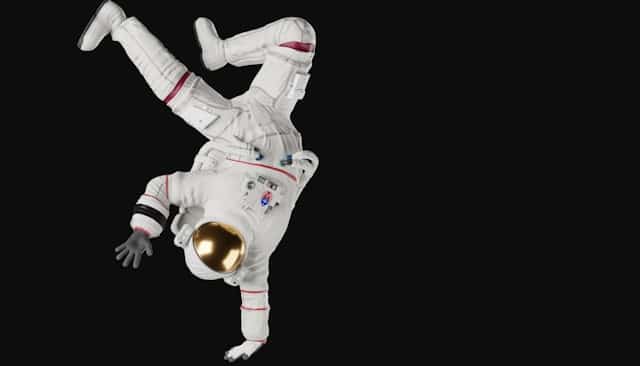What Are the Potential Health Risks of Long-Term Spaceflight on Astronauts?

In the vast expanse of space, humans become explorers in a world not designed for them. As you venture beyond the familiar confines of our planet Earth, a host of challenges emerges. Spaceflight, especially of long duration, exposes astronauts to a unique set of health risks. From the effects of microgravity to radiation exposure, the body undergoes changes that can both threaten immediate mission success and have long-lasting impacts on health. In this article, we will delve into the health risks that astronauts face during long-term space travel.
The Hazards of Microgravity
As soon as astronauts leave Earth’s gravitational pull, they enter a state of microgravity. This drastic shift from the constant pull we are accustomed to on Earth has significant effects on the human body.
Cela peut vous intéresser : How Can Technology-Assisted Meditation Improve Anxiety in College Students?
Astronauts in space experience a rapid loss of bone density, at a rate similar to osteoporosis. The absence of gravity means the body does not need to support its own weight, which leads to the deterioration of bone tissue. This accelerated bone loss increases the risk of fractures, a serious concern for astronauts on long missions.
In addition, microgravity also causes muscle atrophy. The lack of resistance in space means muscles, especially those used for posture and movement, begin to waste away. Exercise programs are used to counteract this, but they cannot completely prevent muscle loss.
Avez-vous vu cela : What Are the Benefits of Infrared Sauna Therapy for Detoxification and Relaxation?
Lastly, the fluid shift in microgravity can lead to a condition known as ‘spaceflight-associated neuro-ocular syndrome’ (SANS). On Earth, gravity pulls fluids down towards the feet, but in space, they redistribute towards the head. This increases pressure in the brain and eyes, leading to vision changes.
The Threat of Space Radiation
Beyond Earth’s protective magnetic field, astronauts are exposed to levels of radiation far beyond what we encounter on the ground. This radiation comes from the sun’s solar flares and cosmic rays from outside our solar system.
The health risks associated with radiation exposure are significant. One of the immediate effects is radiation sickness, characterized by nausea, vomiting, fatigue, and skin burns. In the long-term, radiation can damage the DNA within cells, increasing the risk of cancer.
NASA has set limits on acceptable levels of radiation exposure for astronauts, but in long-duration missions to Mars, these could be exceeded. Radiation shielding and predictive modelling are used to manage the risk, but the threat of radiation remains a significant barrier to human space travel.
Cardiovascular Changes in Space
Interestingly, the heart also undergoes changes during spaceflight. In microgravity, the heart becomes a little more spherical and less work is required to pump blood around the body.
However, returning to Earth’s gravity after a long duration in space can put sudden stress on the heart. There is evidence to suggest that astronauts have a higher risk of developing cardiovascular disease, possibly due to radiation exposure and lifestyle factors such as diet and exercise.
Moreover, the heart muscle, like skeletal muscle, can atrophy in space, potentially affecting its function. Research is ongoing to fully understand these changes and their long-term implications.
Psychological Challenges of Long-Duration Space Missions
While the physical effects of spaceflight are widely discussed, the psychological challenges faced by astronauts are equally important. Living in a confined space, isolation from loved ones, and the stress of managing potential emergencies can all take a toll on mental health.
Sleep disturbances are common, due to the 24-hour light-dark cycles on the International Space Station and the physically demanding schedules. There have also been reports of depression, anxiety and interpersonal conflicts amongst crew members.
NASA provides psychological support for astronauts, including counseling and family communication. However, on long-duration missions, such as a journey to Mars, the delay in communication could make real-time psychological support challenging.
Immune System Changes in Space
Lastly, space travel can impact the immune system. Studies have shown that the function of immune cells can be altered in microgravity, potentially impairing the body’s ability to fight off infections.
Furthermore, the stress of space travel and the altered sleep cycles could also affect immune function. Interestingly, latent viruses, like herpes, have been found to reactivate in astronauts, possibly due to the immune changes.
As we strive to push the boundaries of human space travel, understanding and mitigating these health risks becomes of paramount importance. The challenges are significant, but with ongoing research and technological advancements, the dream of long-duration missions, maybe even a human settlement on Mars, gets closer to becoming a reality.
The Impact on the Digestive System in Space
Another organ system that space travel disrupts is the digestive system. In a microgravity environment, the digestive process experiences changes due to the altered physical state. In space, astronauts eat specially prepared food, which is typically rehydrated with water available on the space station.
The muscle contractions that move food through the digestive tract may operate differently in space, resulting in potential digestive issues. Astronauts have reported discomfort from gas retention due to the inability to burp effectively in microgravity. The lack of gravity also makes elimination of waste a complex process, requiring specially designed waste systems aboard space vessels.
Moreover, the combination of radiation exposure, stress, and the microgravity environment can have a negative impact on the gut microbiome – the collection of beneficial microorganisms that live in our digestive tract. Studies have shown that spaceflight can alter the composition and function of the gut microbiome, which is essential for digestion and overall health. These changes could potentially affect an astronaut’s immune response, nutrient absorption, and susceptibility to infection.
Understanding the impact of long-duration spaceflight on the digestive system is critical to ensuring the health and performance of astronauts. Research is ongoing, with NASA and other space agencies conducting experiments to understand the changes that occur and develop countermeasures.
The Effect on the Neurovestibular System
The neurovestibular system is responsible for maintaining balance and spatial orientation. However, in the weightlessness of space, this system can become disoriented, leading to a condition known as space motion sickness.
During the first few days in space, astronauts often experience dizziness, nausea, and sometimes vomiting – symptoms similar to motion sickness on Earth. This is because the cues used by the neurovestibular system – visual information, gravity, and sensory inputs from muscles and joints – are altered or absent in space.
Over time, the brain adapts to the new environment, and astronauts no longer experience these symptoms. However, upon returning to Earth, they often have difficulty in maintaining balance and coordinating movements, as their brains must re-adapt to the presence of gravity.
Research in this area aims to reduce the impact of space motion sickness and aid quicker readjustment to Earth’s conditions. This is of particular importance for potential long-duration space missions, where efficient recovery upon return would be crucial.
The Conclusion to Long-Term Spaceflight Health Risks
The journey of human exploration into space has opened up a new frontier of knowledge, not just about the universe, but also about our own bodies. Long-term spaceflight exposes the human body to unique conditions that result in a range of physiological changes.
The potential health risks of long-duration space travel are extensive, from bone loss and muscle atrophy to radiation exposure, cardiovascular changes, psychological stresses, immune system alterations, digestive issues and neurovestibular disruptions. However, through ongoing research and development, we are continually learning and adapting.
Every challenge faced provides an opportunity to deepen our understanding and improve technology and countermeasures for the future. As we look towards future missions – perhaps to Mars or even beyond – maintaining the health and wellbeing of astronauts remains a top priority.
The road to the stars isn’t easy, but it’s a journey that tests the boundaries of human potential and endurance. With every step forward, we get closer to understanding how to live and thrive in space. And as we do, we open up the possibility for incredible adventures and discoveries in the final frontier. The dream of long-duration human space travel, once only in the realm of science fiction, is becoming an attainable reality. It’s a testament to human ingenuity and the relentless quest for exploration and knowledge.
